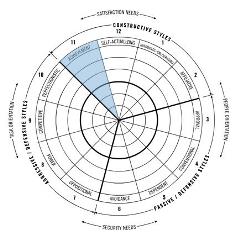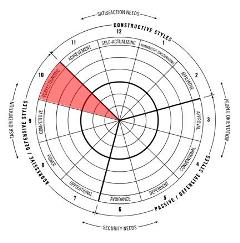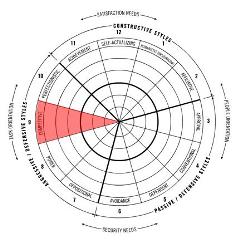
With the 2018 Winter Olympic Games well underway in PyeongChang, we’ve taken a look through our never ending archive of research, books and papers to investigate the correlation between Sport and the Achievement, Competitive, and Perfectionistic Styles.
These styles are often confused in sport (and business), with the athletes and coaches striving for the win. In Michael Gourley’s book “The Psychological Edge in Rugby”, Gourley delves into this subject;
“Just as there is confusion over power and competitive values versus achievement, so there is between achievement and perfectionism. A perfectionist is after flawless results and is not satisfied with anything less. This thinking is a characteristic of a number of successful sportsmen and women.
Players who are perfectionists tend to see themselves as highly effective, and seek to master all aspects of the game. There is, however, a difference between striving for perfection (achievement) and trying to be perfect (perfectionism). While many concern with this style of thinking leads to being overly detailed and losing sight of what really needs to be accomplished. Besides being hard on themselves, perfectionists are also prone to tendency for them to remain aloof and detached from others because they are too task focused. They are highly judgmental and not even the best efforts are good enough.” Insert taken from The Psychological Edge in Rugby by Michael Gourley

Achievement
Based on the need to attain high-quality results on challenging projects, the belief that outcomes are linked to one’s effort rather than change that tendency to personally set challenging yet realistic goals. People high in this style think ahead and plan, explore alternative before acting and learn from their mistakes.

Perfectionistic
Based on the need to attain flawless results, avoid failure and the tendency to equate self-worth with the attainment of unreasonably high standard. People high in this style are preoccupied with details, place excessive demands on themselves and others and tend to show impatience, frustration and indifference toward others’ needs and feelings.

Competitive
Based on a need to protect one’s status by comparing oneself to others, outperforming them and never appearing to lose. People high in this style seek recognition and praise from others, view even non-competitive situations as contests or challenges to “prove” themselves and try to maintain a sense of superiority.
Through examining these different styles it allows individuals to understand how they are perpetuating the current state through their thinking and behaviours. In fact, studies have shown that people who come out ahead in competitive situations focus on performance excellence, or the process of doing well, rather than on the end result of winning. This level of insight empowers and motivates individuals to make changes that will directly increase performance… and maybe increase their chances of a Gold Medal win!